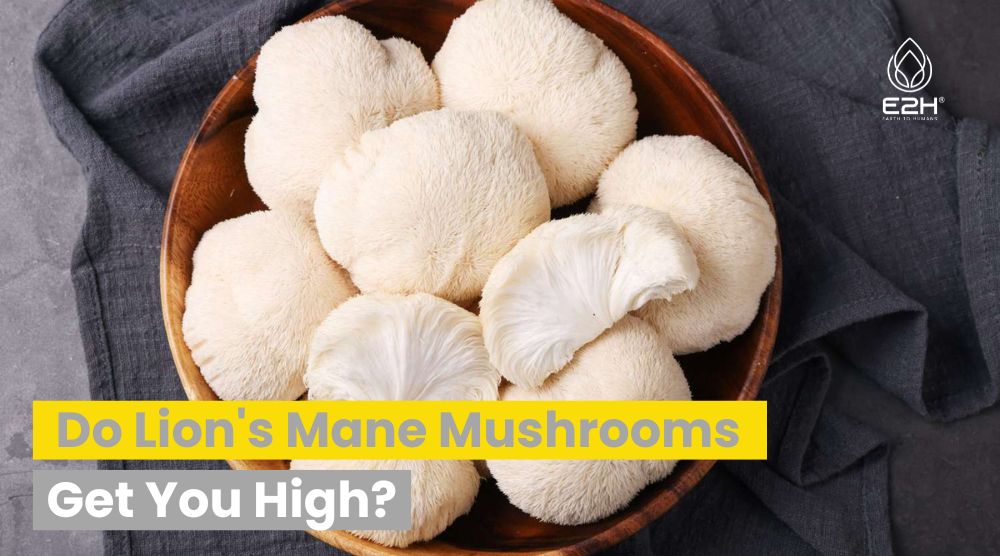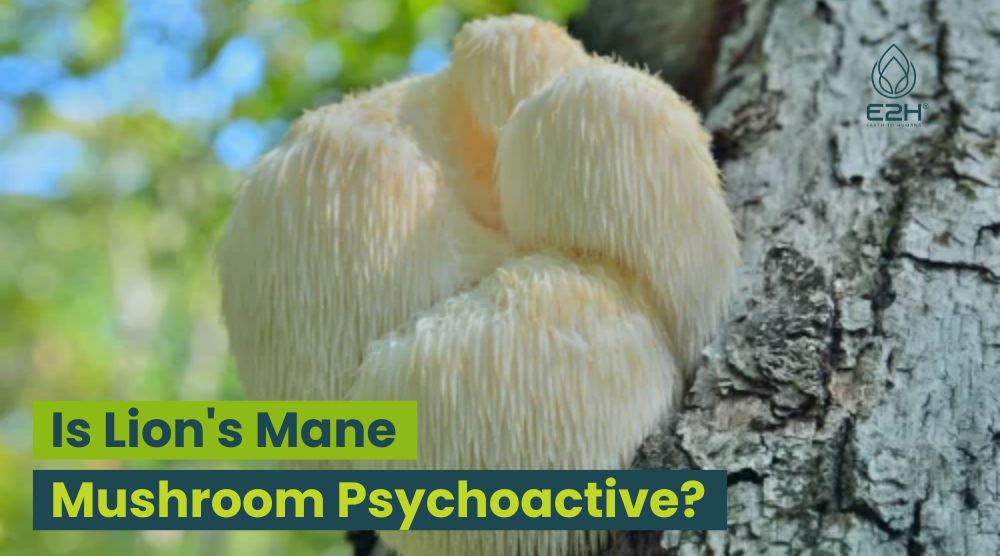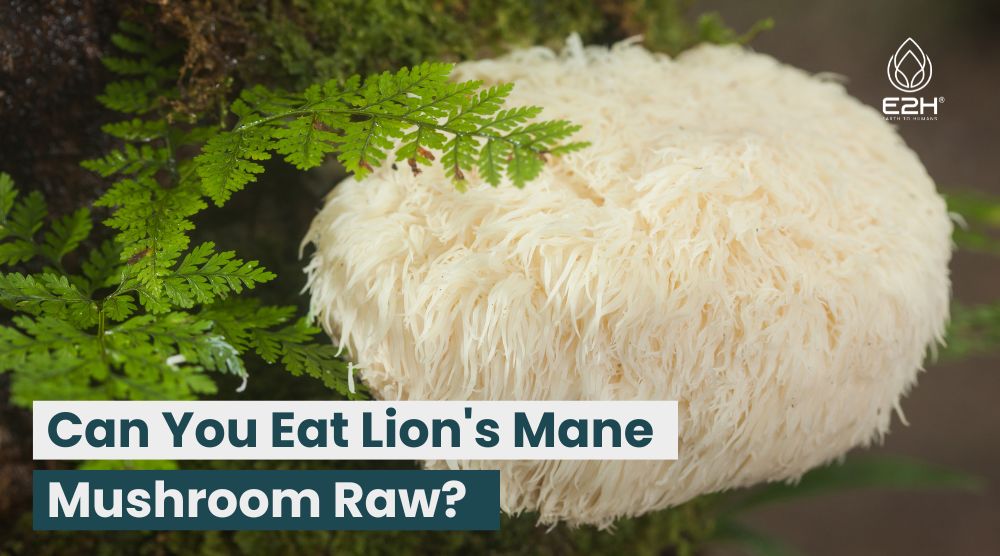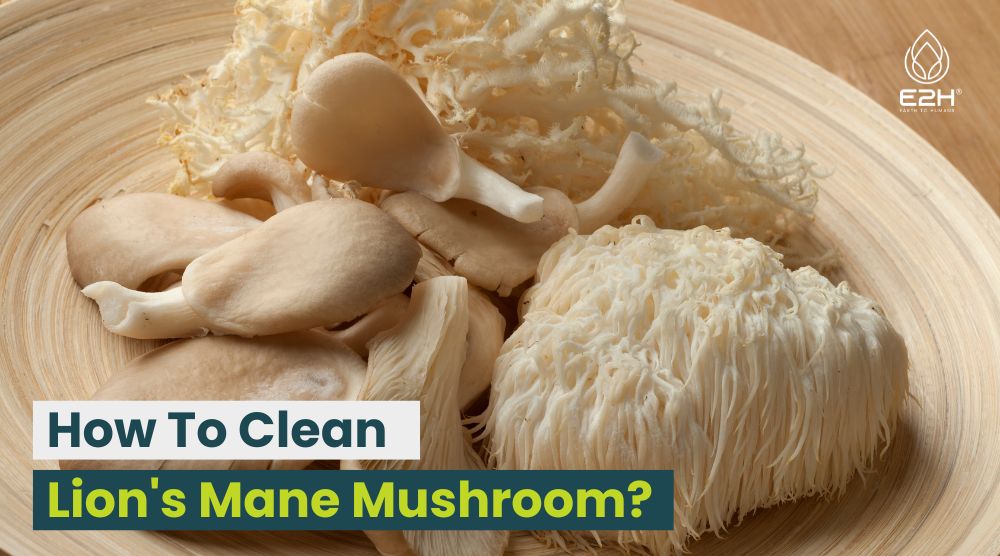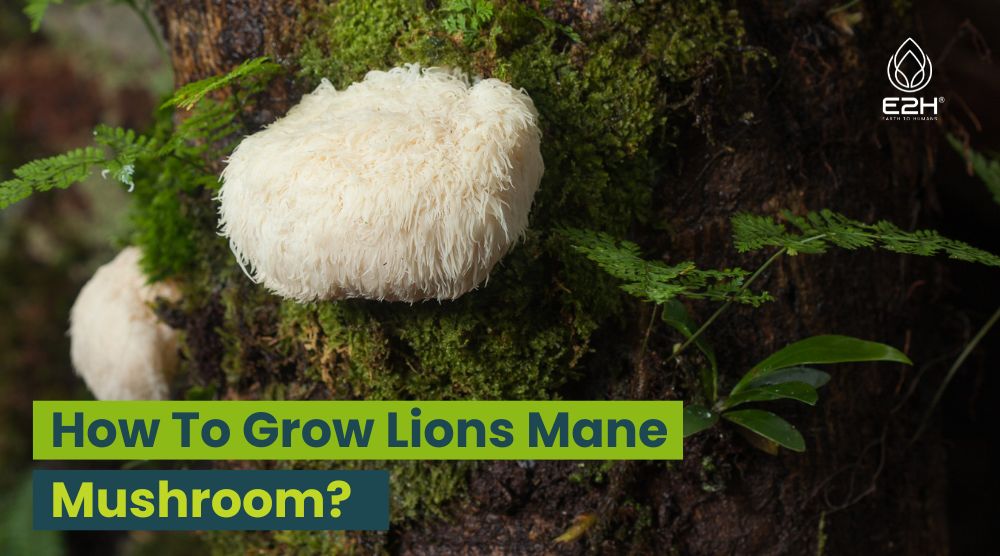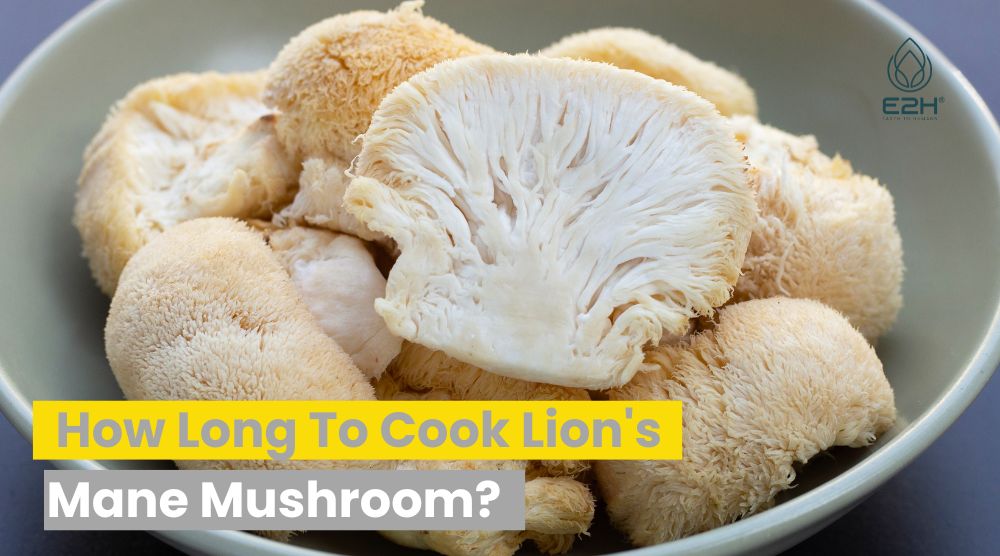Do Lion’s Mane Mushrooms Get You High: No, lion’s mane mushrooms do not have psychoactive properties and do not cause a “high” when consumed. They are known for their potential health benefits and are often used for their medicinal properties.
The composition of Lion’s Mane mushrooms
Lion’s Mane mushrooms contain various bioactive compounds that contribute to their potential health benefits. These psychoactive compounds may include polysaccharides, hericerins, erinacines, and erinaceolactones.
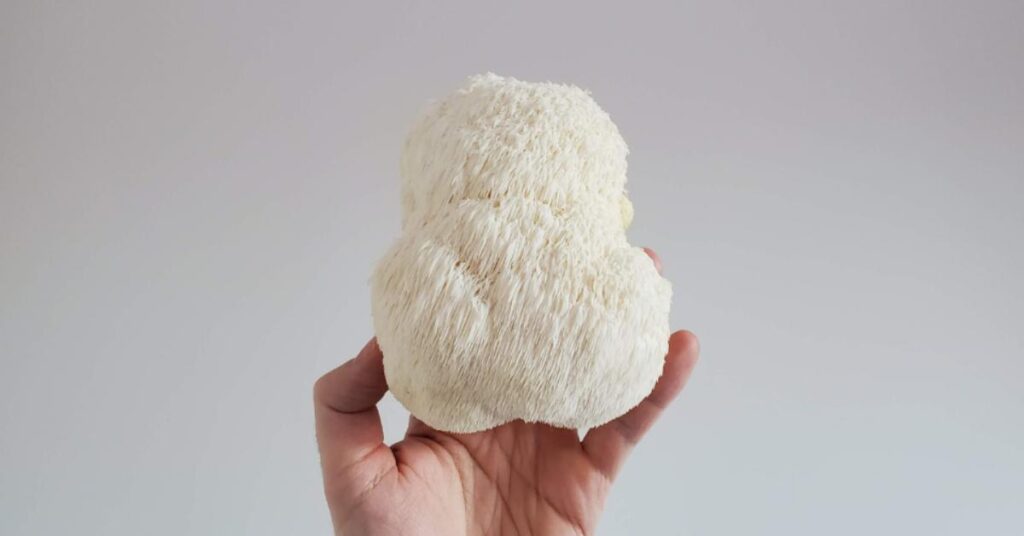
Nutritional value
Lion’s Mane mushrooms are low in calories and fat, making them a healthy addition to any diet. They are also rich in important nutrients such as protein, fiber, vitamins (B1, B2, B3, and C), minerals (potassium, zinc, and selenium), and antioxidants.
Active compounds
The active compounds found in Lion’s Mane mushrooms, particularly erinacines and erinaceolactones, have shown potential in supporting cognitive and immune function, nerve regeneration, immune system modulation, and reducing inflammation.
The misconception of getting high from Lion’s Mane mushrooms
One common misconception about Lion’s Mane mushrooms is that they possess psychoactive properties similar to those found in psychedelic mushrooms. However, this is not the case.
Differentiating between Lion’s Mane and psychoactive mushrooms
Lion’s Mane mushrooms belong to a different genus and species compared to psychoactive mushrooms such as Psilocybe cubensis. The active compounds present in Lion’s Mane mushrooms are not known to induce hallucinogenic or mind-altering effects.
Absence of psychedelic effects
Consuming Lion’s Mane mushrooms will not result in a “high” or altered state of consciousness. Instead, their positive effects will primarily focus on potential cognitive enhancement, nerve regeneration, immune modulation, and anti-inflammatory properties.
How to consume Lion’s Mane mushrooms?
Lion’s Mane mushrooms can be consumed in various forms, including fresh mushrooms, dried mushrooms, extracts, and dietary supplements.
Fresh vs. dried mushrooms
Fresh Lion’s Mane mushrooms can be cooked and incorporated into various dishes, providing a unique texture and flavor. Dried mushrooms can be rehydrated and used similarly to fresh mushrooms, or they can be ground into a powder for use in teas or smoothies.
Cooking methods and recipes
Lion’s Mane mushrooms can be sautéed, roasted, grilled, or used as a meat substitute in vegetarian and vegan dishes. Their mild, seafood-like flavor lends itself well to stir-fries, soups, stews, and pasta dishes.
Lion’s Mane mushrooms and scientific research
Scientific research on Lion’s Mane mushrooms is still in its early stages, but several studies have shown promising results.
Studies and findings
Research has indicated that Lion’s Mane mushrooms may have potential benefits in improving cognitive function, reducing symptoms of neurodegenerative diseases, supporting nerve regeneration, and modulating the immune system.
Future research possibilities
Further research is needed to fully understand the mechanisms behind cognitive benefits and the potential health benefits of Lion’s Mane mushrooms. Ongoing studies aim to explore their effects on cognitive health, specific neurological conditions, optimal dosage, and long-term safety.
Safety precautions and potential side effects
While Lion’s Mane mushrooms are generally safe for consumption, some considerations should be kept in mind.
Allergic reactions
Individuals with allergies to mushrooms should exercise caution when consuming Lion’s Mane mushrooms. Allergic reactions to mushroom species can range from mild symptoms, such as itching and hives, to more severe reactions requiring medical attention.
Interaction with medications
As with any supplement or dietary addition, it is important to consult with a healthcare professional if you are taking medications. Lion’s Mane mushrooms may interact with certain medications, such as blood thinners or immunosuppressants.
Dosage recommendations
Currently, there is no established standard dosage for Lion’s Mane mushrooms. It is recommended to start with a low dosage and gradually increase if well-tolerated. It is always best to follow the instructions provided on the product packaging or consult with a healthcare professional.
Lion’s Mane mushrooms in traditional medicine
Lion’s Mane mushrooms have been used in traditional medicine for centuries, particularly in Asian cultures.
Historical usage
In traditional Chinese medicine, Lion’s Mane mushrooms have been utilized for their potential to support digestive and gut health, strengthen the immune system, and improve cognitive brain function too.
Cultural significance
Lion’s Mane mushrooms hold cultural significance in many Asian countries, where they are often associated with wisdom, longevity cardiovascular health, and spiritual growth.

The potential health benefits of Lion’s Mane mushrooms
Lion’s Mane mushrooms have been studied for their potential health benefits, and while research is still ongoing, several promising findings have emerged.
Cognitive enhancement
Studies suggest that Lion’s Mane mushrooms may have neuroprotective effects on brain and nerve cells, and could potentially enhance cognitive function. These mushrooms are believed to stimulate the production of nerve growth factors, which play a crucial role in brain health and neuronal growth.
Nerve regeneration
Lion’s Mane mushrooms have been found to promote nerve regeneration and myelination. This could have significant implications in the treatment of neurodegenerative diseases and nerve-related injuries.
Immune system support
The bioactive compounds found in Lion’s Mane mushrooms have been shown to modulate the immune system, potentially boosting its function and improving overall immune response.
Anti-inflammatory properties
Certain compounds in Lion’s Mane mushrooms exhibit anti-inflammatory effects, which may help reduce chronic inflammation and associated health conditions.
Growing and harvesting Lion’s Mane mushrooms
Lion’s Mane mushrooms can be cultivated both indoors and outdoors, making them accessible for home cultivation.
Cultivation methods
Growing Lion’s Mane mushrooms typically involves using a substrate, such as hardwood logs or sawdust blocks, inoculated with Lion’s Mane mycelium. The mushrooms require specific environmental conditions, including temperature and humidity, for successful cultivation.
Harvesting techniques
Lion’s Mane mushrooms are typically harvested when they reach a mature stage, characterized by their full size and developed spines. Care should be taken during harvesting to ensure the other mushrooms within are not damaged.
Lion’s Mane mushrooms in the culinary world
Beyond their potential health benefits, Lion’s Mane mushrooms have gained popularity in the culinary world due to their unique texture and flavor.
Culinary uses and recipes
Lion’s Mane mushrooms can be used as a meat substitute in vegan and vegetarian dishes, or they can be incorporated into various recipes such as stir-fries, soups, salads, and pasta dishes. Their delicate, seafood-like flavor pairs well with a variety of ingredients.
Flavor profile and texture
When cooked, Lion’s Mane mushrooms have a tender and fibrous texture, similar to crab or lobster meat. Their flavor is often described as mild, slightly sweet, and reminiscent of seafood.
Lion’s Mane mushrooms as a dietary supplement
For those who prefer a more convenient option, Lion’s Mane mushrooms are available in the form of dietary supplements.
Availability of Lion’s Mane supplements
Lion’s Mane supplements can be found in various forms, including capsules, powders, and tinctures. These supplements provide a concentrated dose of the active compounds found in Lion’s Mane mushrooms.
Choosing high-quality supplements
When selecting a Lion’s Mane supplement, it is important to choose a reputable brand that undergoes third-party testing for quality and purity. Additionally, checking for certifications such as GMP (Good Manufacturing Practice) ensures that the supplement meets certain quality standards.
How does Lion’s Mane make you feel?
Consuming Lion’s Mane mushroom may provide various potential benefits for mental health and cognitive function. Many people report improved focus, clarity, and mental alertness when taking Lion’s Mane. It is believed to support brain health by promoting the production of nerve growth factors. However, individual experiences may vary, and more research is needed to fully understand functional mushroom and its effects on brain cells in different individuals.
Is Lion’s Mane mushroom a drug?
No, Lion’s Mane mushroom is not considered a drug. It is a natural edible mushroom that has been used for centuries in traditional medicine, particularly in Asian cultures. Lion’s Mane contains bioactive compounds that have been studied for their potential health benefits, including cognitive support and neuroprotective properties. It is widely available as a dietary supplement or can be included in culinary preparations.
What happens if you eat a lot of Lion’s Mane?
While Lion’s Mane mushroom is generally safe to consume, eating excessive amounts may lead to digestive discomfort such as bloating, diarrhea, or stomach upset in some individuals. It is recommended to start with a small dosage and gradually increase it to assess personal tolerance. As with any dietary supplement or food, it is best to follow the recommended dosage and consult a healthcare professional if you have any concerns.
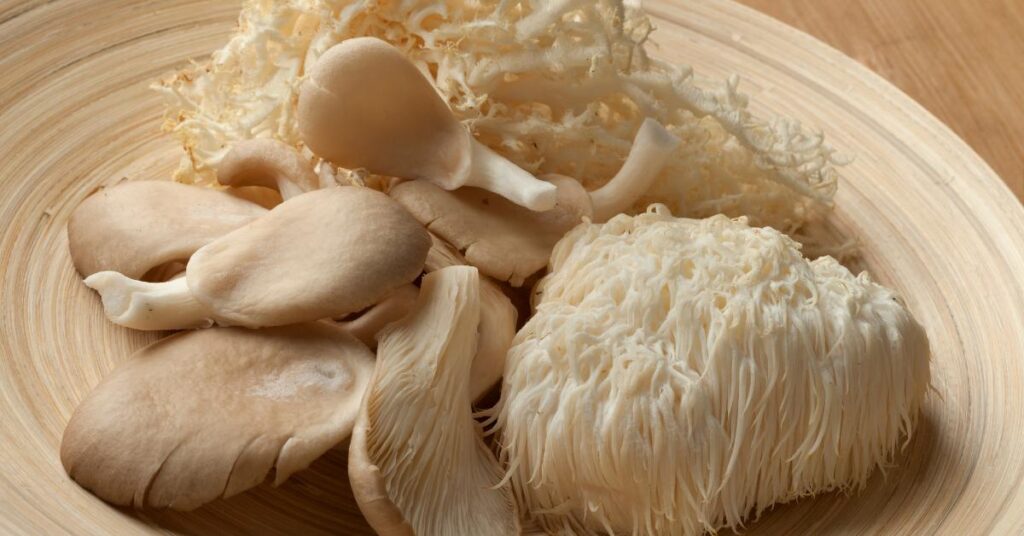
What happens when you start taking Lion’s Mane?
When you start taking Lion’s Mane, you may experience various potential benefits. Some people report improved cognitive function, memory, and focus. Lion’s Mane is also believed to support nerve health and may have neuroprotective effects. However, individual responses may vary, and it is important to note that Lion’s Mane is not a cure or treatment for any specific condition. It is always advisable to consult with a healthcare professional before starting any new supplement regimen.
I Took Lion’s Mane For 30 Days, Here’s What Happened
FAQs
Can Lion’s Mane mushrooms cure neurological disorders?
While Lion’s Mane mushrooms have shown promise in supporting neurological health, they are not a cure for specific disorders. Further research is needed to determine their full potential in treating neurological conditions.
Are Lion’s Mane mushrooms safe for pregnant women?
Pregnant women should consult with their healthcare provider before consuming Lion’s Mane mushrooms or any new supplements. It is always best to err on the side of caution during pregnancy.
Are Lion’s Mane supplements suitable for vegetarians and vegans?
Yes, Lion’s Mane supplements are typically suitable for vegetarians and vegans. However, it is important to check the product labeling or consult with the manufacturer to ensure there are no animal-derived ingredients.
Can Lion’s Mane mushrooms be used as a natural remedy for anxiety or depression?
While Lion’s Mane mushrooms have shown potential in supporting cognitive function and mood, they should not be used as a replacement for professional medical advice. If you are experiencing anxiety or depression, it is important to seek guidance from a healthcare professional.
Are Lion’s Mane mushrooms suitable for children?
As with any dietary addition or supplement, it is recommended to consult with a pediatrician before giving Lion’s Mane mushrooms to children. The dosage and safety considerations may vary based on age and individual health factors.
Conclusion
Lion’s Mane mushrooms offer a range of potential health benefits, including cognitive enhancement, nerve regeneration, immune system support, and anti-inflammatory properties. Despite their popularity, it is important to note that Lion’s Mane mushrooms do not possess psychoactive properties and will not induce a “high” or altered state of consciousness.
They can be enjoyed as a culinary delicacy, incorporated into various recipes, or consumed as a dietary supplement. As with any dietary addition, it is advisable to consult with a healthcare professional before making significant changes to your diet or taking new supplements.
